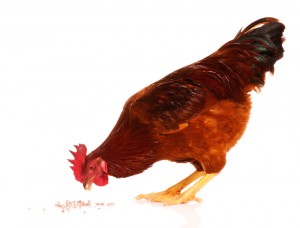The Humane Society of the United States and Perdue Farms have reached a settlement of two federal cases over Perdue’s “humanely raised” claim on its Harvestland chicken labels. HSUS will dismiss their claims with prejudice, in exchange for Perdue removing the label claim.
 Peter Petersan, Director of Animal Protection Litigation for HSUS said in a statement, “we are pleased to see the claim removed from Harvestland’s packaging, which we view to be misleading. We will continue to work to protect both animals and consumers.”
Peter Petersan, Director of Animal Protection Litigation for HSUS said in a statement, “we are pleased to see the claim removed from Harvestland’s packaging, which we view to be misleading. We will continue to work to protect both animals and consumers.”
HSUS sued Perdue twice. The first was in New Jersey. Perdue tried to have a similar case dismissed, which paved the way for that action to proceed. The second lawsuit, a class action matter, was filed on behalf of Florida consumers and alleged that Perdue raised their chickens with “standard mass-produced industry practices.” Those practices include shackling of live birds, transporting birds in cramped trucks for long periods of time in extreme temperatures with no food or water, and inhumane slaughter.
Records from USDA, which Perdue wanted to keep hidden, showed the “Humanely Raised” standards are the voluntary “Animal Welfare Guidelines” of the National Chicken Council, the trade group for the chicken industry. The American Society for the Prevention of Cruelty to Animals stated in February 2014 that those guidelines “completely neglect to address the most fundamental problem: selective breeding for excessive growth, a cruel practice that causes massive suffering and may pose increased food safety risks to consumers.” In addition, only 0.7 square feet of living space per bird is required in those guidelines, no natural light for the animals is required, and only 4 hours of darkness is required in chicken coops. That lighting prevents normal resting and forces fast growth that leads to pain.
Perdue also released a statement saying “Perdue rejects the plaintiffs’ allegations and maintains that its labels are not misleading in any way. Nonetheless, it has agreed to discontinue the labeling claim at issue.”




